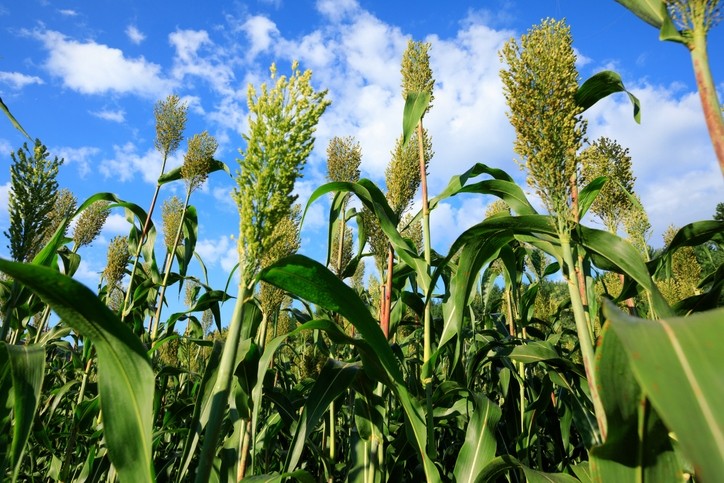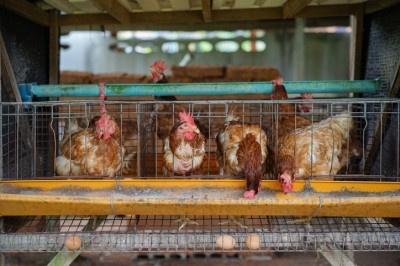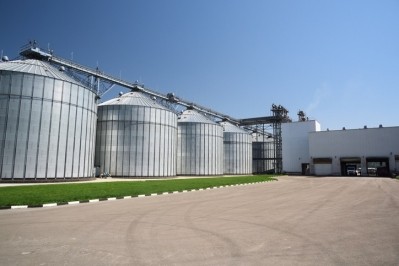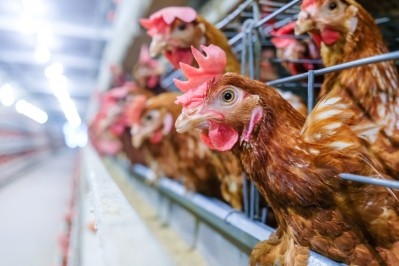Brazilian ginseng may boost poultry feed efficiency, egg shelf life

An international team of researchers from Kansas State University in the US and the Federal University of São Carlos and the Federal University of Pampa in Brazil explored the use of sorghum (SOR) and Brazilian ginseng (Pfaffia paniculata) in the diets of farmed Japanese quail. The researchers published details of their work in the journal, Livestock Science.
“The aim of this study was to evaluate the effects of replacing ground corn with ground sorghum and increasing contents of P. paniculata on quails' performance, and quality and shelf life of eggs,” the researchers said.
The researchers found that use of a ground sorghum-based diet increased feed intake and reduce laying ratio and egg weights compared to the corn diet. Adding the ginseng supplement lowered the feed conversion ratio and quadratically improved egg weight – the highest weight corresponded to adding 2.96g/kg of the supplement.
Egg yolk color intensity fell for birds on the sorghum diet and the addition of the feed supplement did not alter the color, they said. Birds on the corn diet produced eggs with higher specific gravity, and which loss less weight following 20 or 30 days of storage than those on the sorghum diet.
However, use of the feed additive with the sorghum diet linearly improved egg weight loss when eggs were stored for 30 days at room temperature, they said.
“An intermediary content of P. paniculata (around 3 g/kg) may enhance feed efficiency and egg weight of quails,” the researchers said. “In addition, dietary P. paniculata reduces the weight loss of eggs stored for long periods at room temperature.”
Why sorghum and ginseng in quail diets?
Corn is a common energy source in poultry diets, said the researchers. The feed ingredient has high levels of starch and metabolizable energy along with carotenoids.
Carotenoids contain antioxidant properties that support the egg shelf life and boost the yolk color, they said.
As alternative feed ingredients have been examined for use in poultry diets, sorghum has been explored as a replacement for corn because its substitution has not altered the “performance and egg quality of quails,” they said. “Nevertheless, a reduction in egg yolk color intensity is somewhat expected when replacing corn with sorghum because the latter presents lower carotenoids content,” they added.
Brazilian ginseng (P. paniculata) has long been used for medicinal purposes and has been linked to a range of properties including anabolism in insects, gastroprotective properties in rats and anti-inflammatory influence in macrophages, the researchers said. It also is yellow and may be able to alter egg yolk color.
“To the best of our knowledge, there is no study evaluating P. paniculata on quails’ performance, and quality and shelf life of eggs,” they said. “We hypothesized that SOR [sorghum] could replace COR [corn] in the diet without affecting the performance of quails and that increasing concentrations of P. paniculata would improve the yolk color intensity and shelf life of eggs.”
Feeding trial details
In the feeding trial, 210 birds received one of five diets starting on day 29 of life, the researchers said.
However, evaluation started when birds reached an average egg production of 0.5 egg/day on day 55 of life, they said. Birds were tracked for four, 14-day cycles or for 56 days.
The diets included a ground corn-based reference diet (COR) and four ground sorghum-based diets with increasing levels of Brazilian ginseng at 0, 2, 4 or 6g per kg, they said. All diets were designed to have similar energy and protein levels.
Feed offered was noted daily and orts were tracked every 14 days, the researchers said. All eggs were collected on days 12 to 14 of each of the sampling cycles with some stored at room temperature while others were refrigerated.
Egg quality, weight, length and width were checked on day 0, and after 10, 20 or 30 days of storage, they said. Specific gravity was determined, and eggs were opened to assess the internal quality and track yolk color and Haugh unit score (HU).
Results
The researchers speculated that the sorghum diets would maintain bird performance while reducing yolk color. However, they also thought that the ginseng additive would boost yolk color and egg shelf life for eggs from birds on a sorghum diet.
Quals on the sorghum diet had increased feed intake compared those on the corn diet and the sorghum diet was found to have a lower energy density, they said. “Although quails fed SOR had greater feed intake, their laying ratio and egg weight were lower compared with quails fed COR, resulting in a greater feed conversion ratio (FCR),” they added.
However, adding the ginseng linearly decreased the FCR and quadratically influenced egg weight – the highest egg weight was found when birds received 2.96g/kg of the supplement, they said.
The sorghum diets were not found to alter HU, yolk index or the contents of albumen and yolk through the storage period, the researchers said. However, the sorghum-based diets did have a reduced yolk color index compared to corn, but regardless of temperature or storage period.
Eggs from birds on the sorghum-based diet also lost weight faster, especially when eggs were stored at room temperature, they said. Eggs from birds on the sorghum diet also had a higher decrease in specific gravity following 30 days of storage than eggs from corn-fed birds.
“These results show that eggs from quails fed SOR lost water faster than those fed COR,” they added.
However, the linear addition of the ginseng additive slowed weight loss from day 20 to 30 of storage at room temperature, they said.
Source: Livestock Science
Title: Performance and egg quality of Japanese quails fed ground sorghum diets and increasing levels of Brazilian ginseng (Pfaffia paniculata)
Authors: L. Kufel, H. Romania, J. Vieira, T. Del Valle, C. Takiya, L. Dias, J. Silva
DOI: doi.org/10.1016/j.livsci.2019.06.020














